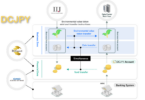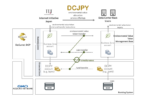The U.S. Department of Energy’s (DOE), Office of Science, awarded a $1.05 million grant to startup IoT company BEM Controls for a blockchain project to create the “Energy Internet”. The transactive energy platform aims to enable building owners to buy energy from distributed sources such as solar generators or wind farms. Energy utilities and grids will also participate in the platform.
This follows a previous grant to BEM Controls used to develop the initial platform. The second grant is to enhance and commercialize the platform. Not only does the platform enable peer-to-peer transaction for electricity generation, but it also targets demand response. In other words, the consumer will adapt their usage based on the variable price of energy. During peak periods, one expects the cost to be higher.
The project involves a collaboration with utility ComEd, which is part of Exelon Corporation with 10 million electricity and gas customers. The University of Denver and Virginia Tech are also participants. A Virginia Tech team founded BEM.
ComEd says it will use its Grid of the Future Lab for demonstration of the platform over the three year development period.
“The growing proliferation of distributed energy resources calls for advanced management frameworks that support peer-to-peer communications while being fast, scalable and secure,” said Dr Amin Khodaei, Chairman of the Electrical and Computer Engineering Department at the University of Denver.
BEM controls developed WiseBldg software which allows residential and commercial buildings to monitor and adjust energy usage. The blockchain platform is being integrated with WiseBldg. According to BEM CEO Dr Saifur Rahman, grid operators, energy producers and building operators will have “real-time visibility into energy usage of their assets and local availability of energy resources which is critical to making transactive energy a reality.”
In June the DOE made another blockchain grant to Xage to use distributed ledger technology to help improve the security of the grid.
There are numerous startups focused on distributed grids and renewable energy. Last month, Japan’s Marubeni invested in WePower. Shortly before that, Shell joined Sumitomo to invest in another blockchain energy startup LO3. The Energy Web Foundation, which launched its blockchain in June has more than a hundred big-name affiliate partners including the likes of Shell. And PowerLedger recently announced a deal with a subsidiary of Austrian utility Energie Steiermark.






